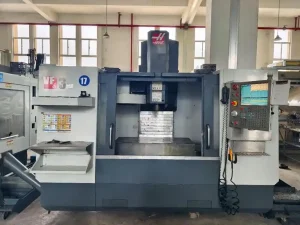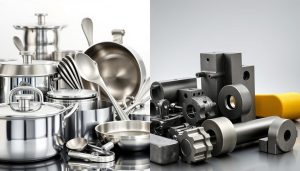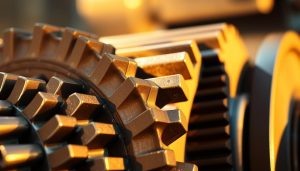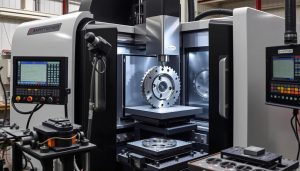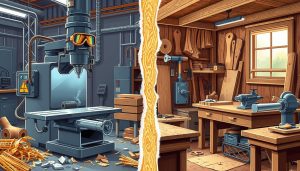In the world of precision manufacturing, choosing the right material is key. It affects how well a product works, how long it lasts, and its cost. The material you pick can make a big difference in the success of a CNC machining project. Let’s look at what you need to know about matching materials with CNC machining projects.
Do you know how important material selection is in CNC machining projects? Check out this detailed guide to learn how to choose the best materials for your precision manufacturing needs.
Why Material Selection Matters in CNC Machining
Choosing the right material for your CNC project is key. It affects product quality, manufacturing efficiency, and material properties. Knowing why material selection is important is the first step to success in CNC machining.
Impact on Product Performance and Longevity
The material you pick impacts your product’s performance and how long it lasts. Strength, hardness, and ductility are important. They decide how well a part can handle wear and stress over time. By picking the right material properties, you can make your product better and last longer.
Influence on Cost and Machining Time
Material choice also affects the project’s cost and how fast it can be made. Some materials cost more, and some need more complex machining. Finding the right balance between product quality and cost is key for a successful CNC project.
“The choice of material can make or break a CNC machining project. It’s not just about finding the cheapest option, but the one that delivers the best product quality and manufacturing efficiency for your specific needs.”
By thinking about material properties, product quality, and manufacturing efficiency for your project, you can make parts that are high-quality, cost-effective, and durable. These parts will meet your specific needs.
Factors to Consider When Selecting Materials
Choosing the right material is key for any CNC machining project. Material characteristics, engineering needs, and environmental factors are all important. Let’s look at what to consider when picking materials for your CNC machining projects.
Mechanical Properties: Strength, Hardness, and Ductility
The mechanical properties of a material are crucial. Strength, hardness, and ductility affect how well it performs. Strong materials handle high loads well, while ductile ones can take on complex shapes.
Knowing these properties helps pick the best material for your project.
Thermal and Electrical Conductivity
Thermal and electrical conductivity are important for some projects. Materials with high thermal conductivity can handle high temperatures well. Electrical conductivity is key for parts that carry electricity.
Corrosion Resistance and Environmental Considerations
Corrosion resistance and environmental factors are also key. Materials must withstand harsh conditions like extreme temperatures and chemicals. Environmental rules and sustainability also play a role in material choice.
By carefully looking at these factors, you can choose the best material for your CNC machining project. This ensures it works well, is cost-effective, and is good for the environment.
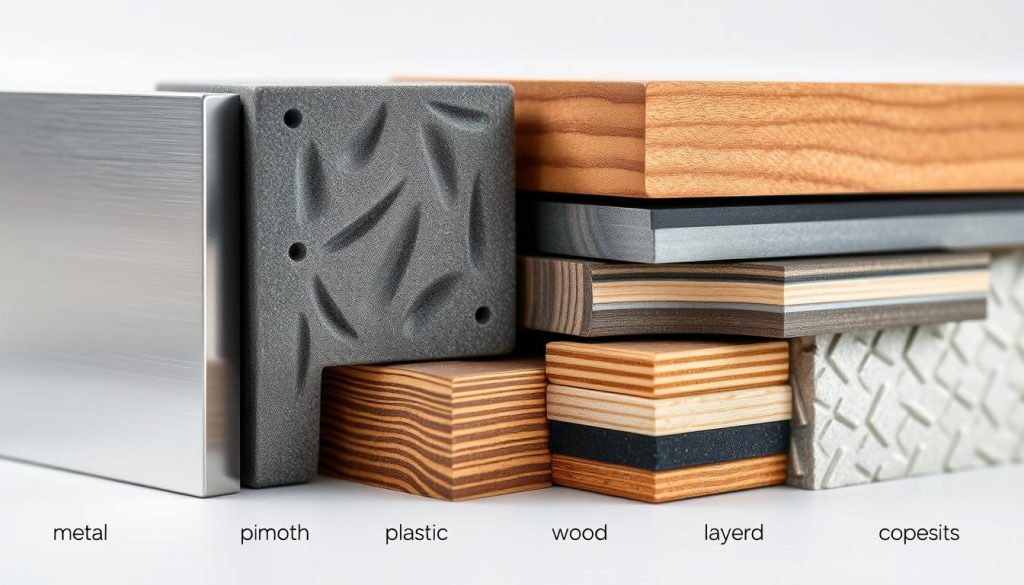
“The right material choice can make all the difference in the success of a CNC machining project.”
Common Materials for CNC Machining Projects
In CNC machining, choosing the right material is key to success. Metals, plastics, and composites each have special qualities. Let’s look at the most used materials and what makes them stand out.
Metals: Aluminum, Steel, and Titanium
Metal machining is a big part of CNC work. Aluminum, steel, and titanium are top picks. Aluminum is light, doesn’t rust, and conducts heat and electricity well. Steel is strong and lasts long, perfect for tough jobs. Titanium is strong, light, and doesn’t rust, great for planes and medical stuff.
Plastics: ABS, Nylon, and PEEK
Plastic CNC machining has improved a lot. ABS is tough, stable, and easy to work with. Nylon is strong and bends well, used for gears and bearings. PEEK is top-notch for high heat and chemicals, used in aerospace and cars.
Composites and Specialty Materials
CNC also uses composite materials and special stuff. Composites mix strong fibers with light resins for top parts. Ceramics and special alloys are used for electronics, optics, and high heat.
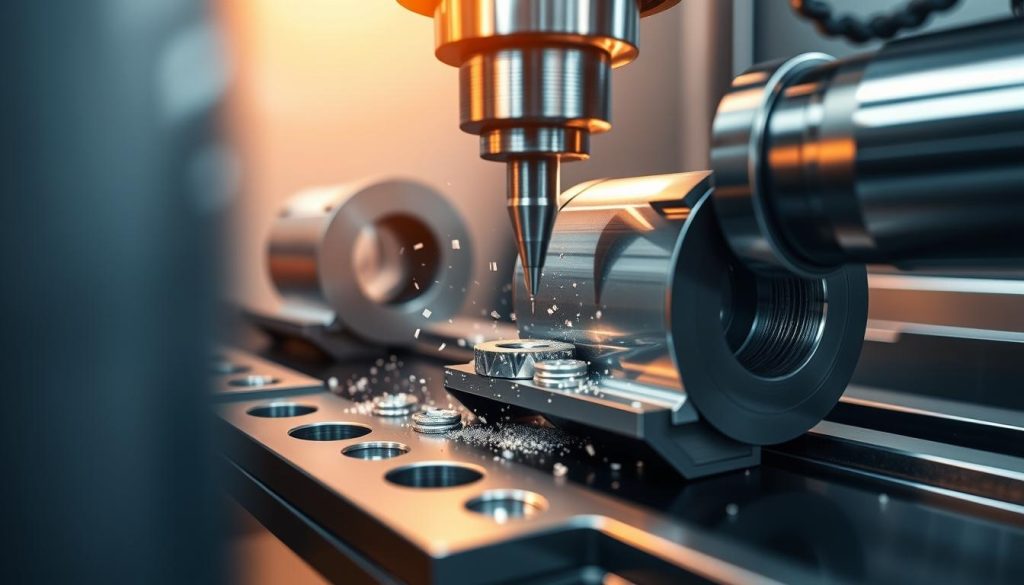
Choosing materials for CNC projects is very important. It affects how well the product works, lasts, and costs. Knowing what each material can do helps CNC experts make the best choices for their projects.
How to Optimize Material Choices for Specific Applications
Choosing the right materials is key in CNC machining. It affects your project’s success, whether you’re making prototypes or final products. Different industries like aerospace, medical, and automotive need specific materials. These must meet strict standards.
Prototyping vs Production
In prototyping, quick and affordable materials are preferred. These include application-specific materials that are easy to work with. For production, focus on durable materials that follow industry standards.
Industry-Specific Requirements: Aerospace, Medical, and Automotive
Each industry has its own needs for CNC machining materials. Aerospace needs strong, light materials that resist corrosion and heat. Medical requires materials that are safe for the body and can be sterilized. Automotive parts must handle high temperatures and vibrations while being cost-effective.
“Selecting the right materials for your CNC machining project is not a one-size-fits-all approach. It requires a thorough understanding of the unique requirements of your industry and application.”
By understanding these needs and working with CNC machining experts, you can make the best material choices. This leads to better products, more efficiency, and success.
Shixinproto’s Material Expertise for CNC Machining
At Shixinproto, we’re proud of our skill in picking materials for CNC machining. Our team of experts carefully looks at each project’s needs. This ensures we offer custom CNC solutions that meet our clients’ high standards.
Tailored Material Solutions for High-Precision Projects
Shixinproto knows how to choose the best materials for your CNC projects. This is true for aerospace, medical, automotive, and more. We consider things like strength, heat and electricity conductance, and resistance to corrosion.
This way, we make sure your products last and work well over time. With our knowledge of new materials and methods, Shixinproto creates custom CNC solutions. These solutions are at the forefront of high-precision manufacturing. Our focus on innovation and quality shows in every project we do.
